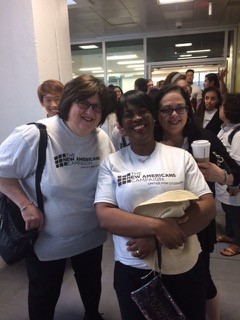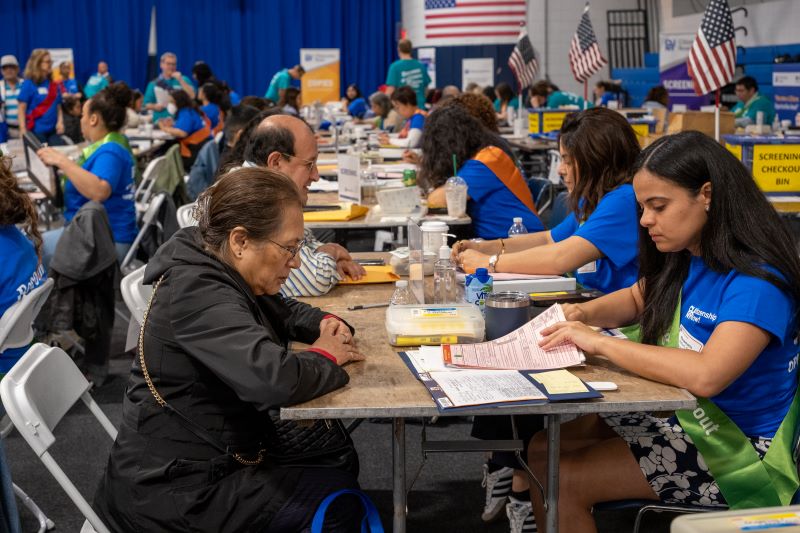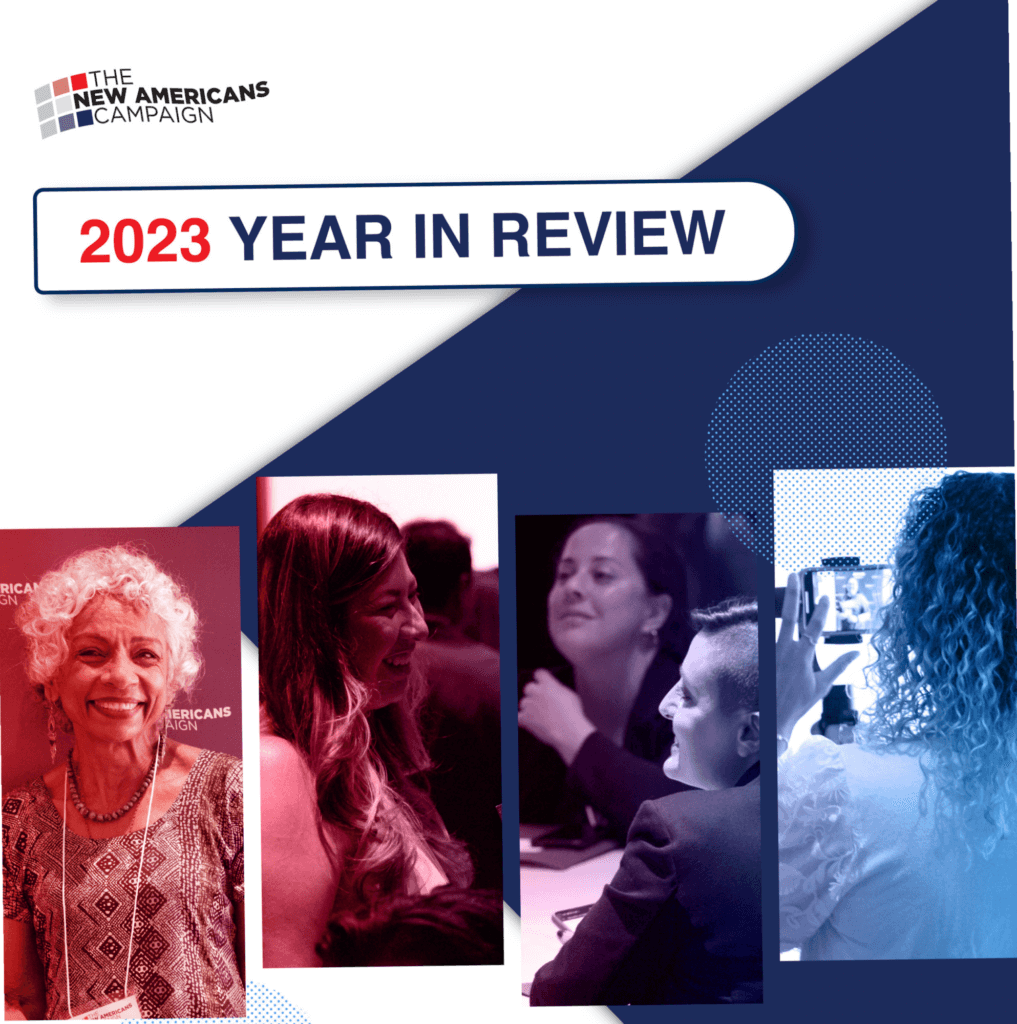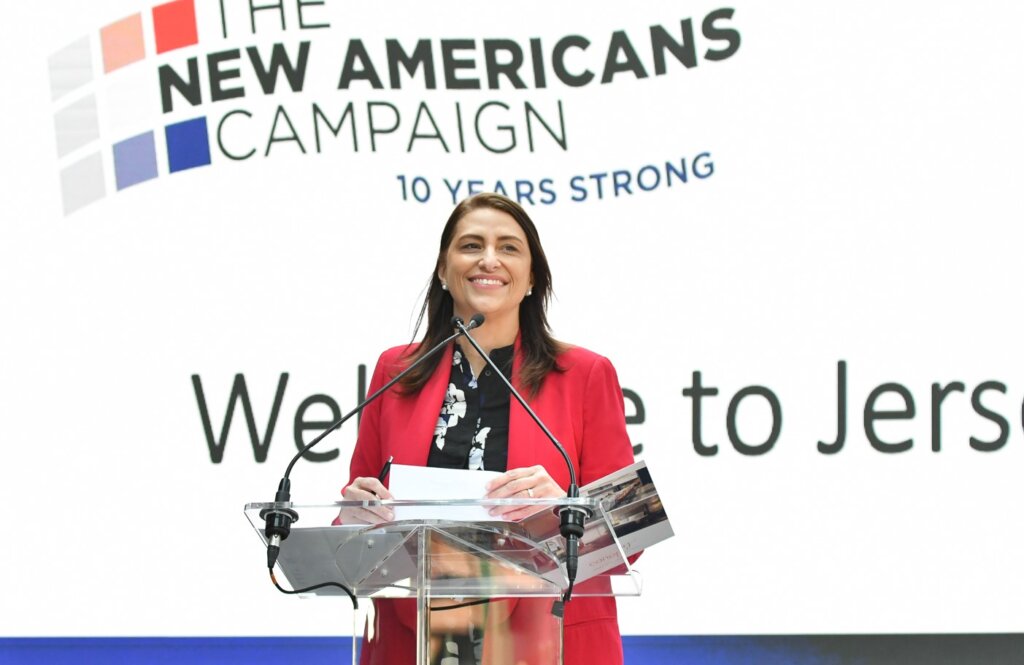Lori Alexander: New to the NAC and Ready to Try New Ideas


This was our very first NAC Conference. Philadelphia just became a New Americans Campaign site in October of 2017. One thing that especially struck me was the large number and variety of agencies attending from all over the country. I was surprised at how many of these organizations were new to me. So it was great to see how many people were involved in citizenship and good to see people doing what we are doing.
My goal at the conference was to learn how other agencies are conducting workshops for citizenship, both large and small, and to learn some of the best practices from others who might have sites that are similar to ours. I do workshops regularly with 10 or 15 people, but I haven’t done a really large one. So I was also very interested in attending the Miami NAC mega workshop to see, in person, how a really big one works and to see whether there were ideas we can use.
We have a grant to expand services to more people, which we are planning to do as a collaborative. We’re not going to have anything as large as they did in Miami. They were aiming for 500 people and even more showed up. We are looking to do a few medium workshops and one larger one with around 150 or 200 people. But I hoped to get a lot of ideas from observing a real one as it was taking place.
The mega workshop was overwhelming because of the number of people and the long lines. I don’t know if it would have been possible, but I wonder if we could do two sessions of 250 rather than one 500-person workshop. They had thought out all their stations, but we might structure the flow differently with fewer substations. It gave me a lot to think about and will give my collaborative something to discuss as a group.
For our workshop it might be a good idea to have people pre-register and have a designated line when they come in, as was done at the Miami event. It was also a good idea to give people worksheets to fill out while they’re waiting. Or we might want to pre-screen people at a separate event. Our Philadelphia NAC group will be discussing all of this because we are planning on three medium events of hopefully about 50 people each, which is the largest we’ve done. We are having separate screening days so we will know pretty well if people are eligible for citizenship, and we will know exactly who will be attending the workshops so that we can schedule appointments and have a better idea of the number of attorneys and volunteers that will be needed.
During the conference there was one idea I really liked, if it is do-able. Somebody said that at their events, which are not mega events, they assign a volunteer to each applicant who went through the whole process with them. Instead of people not knowing what to do next, the volunteer is with them to be their guide each step of the way. I thought that sounded wonderful, if it’s possible to get the volunteers. We’re working with several of the law schools here in Philadelphia to enlist volunteer law students to do screenings at the smaller workshops. But I think perhaps college students could help if we want to do one-on-one guides at a larger event.
There was also a question of how to handle screening or pre-screening and what type of background the screeners should have. Amongst the people I spoke with there were differing opinions. Many felt that only someone with a legal background should do the screening. And then there were others who train non-attorney volunteers for the task and they say the process is going fine that way. I tend to lean more toward using legal volunteers, but after speaking with other people, I’m probably going to try out the use of non-attorneys.
Citizenshipworks was new for me. After seeing it in person, I think it can be a good timesaving tool that we will try to use in our workshops when we pre-screen people. We will give them the link to Citizenshipworks and ask them, if they are able to, to fill it out. Then when they come to their session, the pro bono attorney who sees them can pull up their completed form and then go over everything verbally with a lot of the basic items, like addresses and birthdays, already filled in.
I also met Andrea Willis from USALearns, which is a free website that people can use to study for the citizenship test. She did a demonstration of the program during her presentation. People use it online, it’s very user friendly and it seemed like a very good resource for clients, who are already taking classes. The lessons and activities go over everything that people will see during the application process and at the naturalization interview — reading, comprehension and civics. We cover these topics in our classes, but I see it as a good supplement to reinforce what they are studying.
I liked the legal trainings at the conference. I attended a session on issues of good moral character, led by Eric Cohen, Executive Director of the ILRC, which I really liked. I’m going to be using what I learned there this week to train my staff. He went over advanced legal issues that we can use in our work. For example, he suggested arguments to overcome the “false testimony” issue that were very interesting. I just had a case with a claim of false testimony and these were good ideas that I may be able to use to win my case.
I am very glad I went to the conference. Not just for the Miami weather in February, which was lovely by the way!
Lori Alexander is the immigration services program manager at HIAS Pennsylvania where she has worked for 39 years. She is accredited to represent clients before both the USCIS and EOIR. HIAS Pennsylvania, which is the Site Leader for the Philadelphia New Americans Campaign, provides legal services for refugees and immigrants, as well as doing refugee resettlement.



